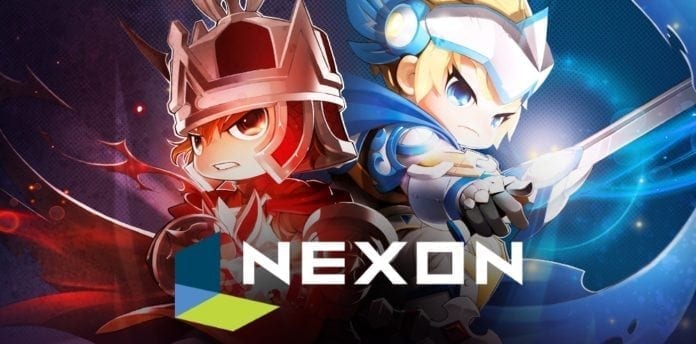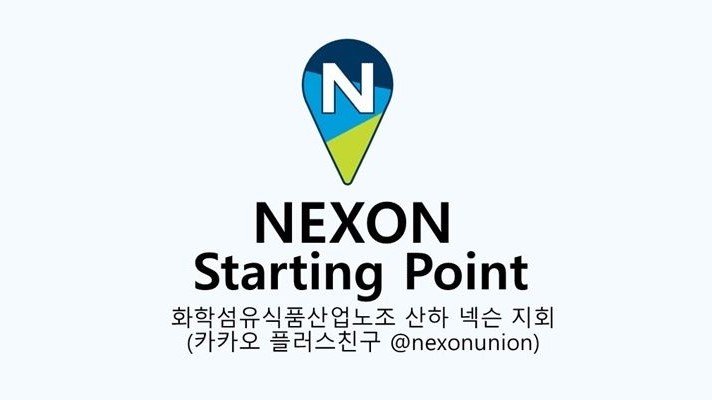
Nexon’s labor union this week called on the Korean games company to guarantee employees’ job security. As reported by the Korea IT Times (h/t GamesIndustry.biz), more than 600 unionized Nexon workers gathered outside the office building on September 3 to voice concerns about possible restructuring following the failed sale of the firm this year. Nexon was reportedly on track for a sale worth around $9 billion, but management ultimately canceled the effort when it could not find an acceptable suitor.
Nexon’s workers, around 100 of which are currently on standby because of four suspended projects, are worried that ongoing reorganization at the company following the failure to sell will endanger their jobs.
“Stop making excuses for reorganization. Ensure job security. We cannot endure disorganization without countermeasures,” the workers said at the rally, according to the IT Times.
The IT Times also reported that there’s a document circulating at Nexon claiming that if the suspended workers are not relocated within three months, they will need to leave the company.
Bae Soo-chan, the head of Nexon’s labor union, commented, “If the project ends or fails, there are interviews. They don’t give jobs if workers don’t pass the interview. We’re here to make a reasonable claim about job security. In other words, if the project ends and the team is disbanded due to poor games, it is not certain whether the team’s manpower will be relocated, which is why workers in the game industry suffer from constant job insecurity.”
Although Nexon had been seeking a suitor, the company is not struggling financially. In fact, earningshave been strong over the first half of the year overall, with solid performances from MapleStory, Dungeon Fighter Online, and PC titles in China and Korea, such as EA’s FIFA Online 4, which it publishes, and Counter-Strike Online (which it operates in China). Net profit did fall in the second quarter, but the company saw record revenues and is in the midst of acquiring Swedish developer Embark Studios, led by former EA executive Patrick Soderlund. Nexon seems to be streamlining its Western efforts and leaning on Embark as it shuttered two US offices last month.
NXC Corporation (Nexon’s holding company) CEO and Nexon founder Jung-ju Kim had been considering a sale as his possible exit from the game industry. Now, the IT Times noted that Nexon is in the midst of an executive shakeup, as both Chung Sang-won, vice president for development, and Park Jie-won, global chief operating officer, offered to resign, while Heo Min, former CEO of Neople, is expected to join the management team.

Nexon’s labor union is one of just a handful that exist in the booming global games business. When it formed a year ago, the union said that it hoped to spur on the entire games industry.
“The establishment of the Nexon union will act as a tow truck to improve labor conditions in the gaming industry as a whole,” the union said in September 2018. “Labor conditions in the local gaming industry are very poor, although the local market has expanded to a 12 trillion won ($10.8 billion) business.”
In that year since Nexon’s labor union formed, we’ve seen a tumultuous landscape filled with layoffs at major publishers like Electronic Arts and Activision along with studios like Telltale and ArenaNet. Some of these staff cuts came with little warning or severance, and while some companies try to “relocate” jobs within the organization (as Nexon is looking at doing now), that doesn’t always happen.
The rallying cry for unionization in the industry has been growing at the same time, particularly when there’s a sense that high-powered executives are more concerned with profits than the livelihood of developers actually making games — and that’s especially true at larger, publicly traded firms that have to answer to shareholders. And that sentiment has only been fueled by a persistent crunch culture that treats developers like cogs rather than people. There’s an effort by more studios to limit or eliminate crunch, but the problem is by no means solved.
Moreover, unionization remains a divisive issue. According to GDC’s 2019 State of the Game Industry survey, less than half (47%) of games industry employees polled supported unionization, and another 16% were directly against it. More than a third, however, seemed unsure, answering with a “maybe” for supporting unionizing or a simple, “I don’t know.” As with political campaigns, for people who are pro-union, the battle is now to turn those undecided developers into “yes” respondents.
This is what advocacy group Game Workers Unite (GWU) has been striving to do. Game Workers Unite International Organizer Emma Kinema told GameDaily at the end of last year, “A lot of people know that unionization is essential for improving our industry’s conditions, but those people are already supportive to this cause. Far more people need to actively see unionization in action before they are convinced, so seeing GWU UK make public strides to organize workers on a national scale is crucial to inspiring the vast majority of the industry’s workers to get involved.”
GWU UK is the only chapter that went on to become an official trade union, and laws for unionizing are going to be different from country to country. Because of that, the IGDA isn’t sure that unionization is a one-size-fits-all solution to the industry’s woes.
When asked for comment, IGDA executive director Renee Gittins told GameDaily, “Due to varying laws, cultures, and economic situations, the solutions that work in one country or industry may not be the right answers for other situations. The IGDA supports both our union and non-union members equally and works to improve conditions for game developers regardless of location, company, or union status.
“As a hit-based industry, job instability is an industry-wide problem that affects our ability as an industry to retain mid-career and veteran professionals. The IGDA urges all game studios and publishers to consider sustainability and the lives of their workers when growing and making workforce adjustments. We understand that studios will rise and fall, but we can all work together to approach management and growth in ways that provide the best employment stability possible.”
Gittins’ statement is slightly more neutral than her predecessor’s, Jen MacLean, who came under fire after moderating a panel on the topic at GDC last year. MacLean was lambasted for voicing what sounded like “anti-union rhetoric” (according to The Verge), and IGDA’s critics would argue that the organization doesn’t truly represent all developers. In fact, on GWU’s FAQ page, the group states that trade bodies like the ESA and professional associations like IGDA “are focused on the business owners in the industry, not the workers in the industry; and they are not labor unions.”
Time will tell whether the game industry will ever support a broad unionization effort, but there is another option. Glory Society believes that more developers should be considering the simple idea of a cooperative, or a studio that “operates democratically in all aspects.”
As Glory Society co-founder Bethany Hockenberry eloquently put it, “It prevents the sorts of power-hungry manager behavior that you hear about in the industry. We’re legally-bound not to be dicks.”
Wouldn’t the industry be a lot better off with more anti-dick measures?
 GameDaily.biz © 2025 | All Rights Reserved.
GameDaily.biz © 2025 | All Rights Reserved.